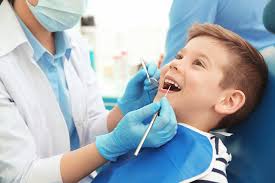Teeth play a crucial role in a child’s development. Their ability to eat, speak, and show their oral health directly influences facial expressions. Teeth also affect the way they look, such as their smile and the overall shape of their face. These are just some of the reasons why parents have a responsibility to teach the basics of oral hygiene to their children.
Many people believe that teeth are like bone. While they are both hard and made of the same minerals, such as calcium, teeth don’t regenerate as bones do. Once you lose your permanent teeth, you’ll never get them back. Poor hygiene and oral care also contribute to teeth loss. Fortunately, many dental issues are preventable with proper oral habits.
Here some of the most common dental problems in children and how to avoid them:
- Tooth decay
Tooth decay is one of the most common and alarming health problems in children today. According to the Centers for Disease Control and Prevention, approximately one in five children under the age of 11, and one out of ten10 teenagers suffers from tooth decay.
Cavities are caused by an excess of bad bacteria in the mouth. Bacteria manifested as plaque slowly accumulate around teeth. If left alone, the plaque will slowly eat away at the enamel, the outer shell the protects teeth, which then leads to decay.
Thankfully, you can avoid tooth decay with regular brushing and flossing. Periodic visits to a kid’s dentist also ensure that your child’s teeth remain in healthy condition. Make sure to use fluoride toothpaste and limit the consumption of carbohydrate-rich foods and drinks.
- Halitosis
Even children are affected by halitosis, more commonly known as bad breath. While the occasional stinky breath is normal, it could be a sign of an underlying issue if regular brushing won’t solve the problem.
Certain diseases such as diabetes and sinusitis can cause bad breath among children and adults. The primary reason is bacteria buildup in the mouth. Bacteria love to feast on plaque and leftover food. One of their byproducts is hydrogen sulfide, which is responsible for the bad odor.
The quickest way to prevent bad breath is to brush the teeth and to use an antibacterial mouthwash. If your child is too young for mouthwash, you will have to clean their tongue and gums yourself.
- Sensitivity
Another common dental complaint among children is sensitivity. If they experience pain or discomfort when consuming hot or cold food, they might have sensitive teeth. Sensitive teeth are more common than you think, but it could also be a sign of an underlying problem.
Specialized toothpaste and mouthwash can help with immediate relief, but if you want the pain to completely go away, you might want to visit a dentist to explore your treatment options.
Good oral care practices can solve many of the dental problems that children experience, but some things are best left to the professionals. Children are prone to dental anxiety, and you might want to let a kid’s dentist take the lead and solve the issue.
